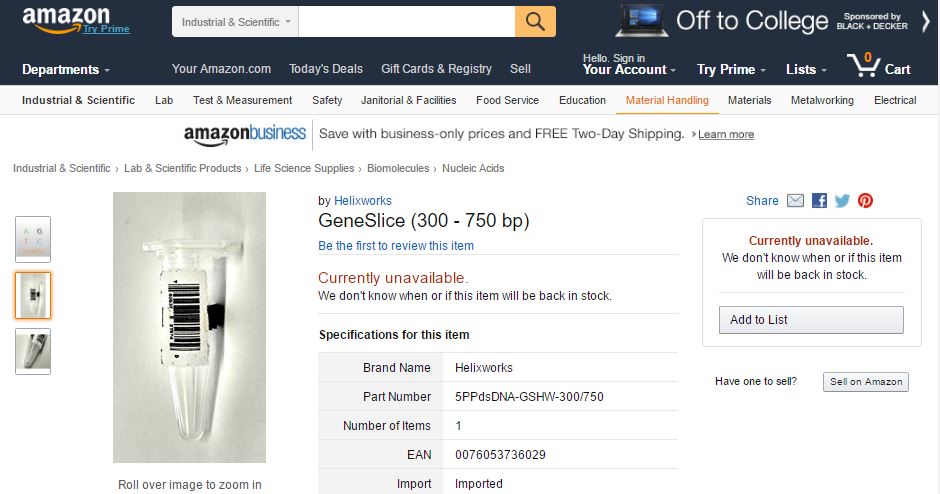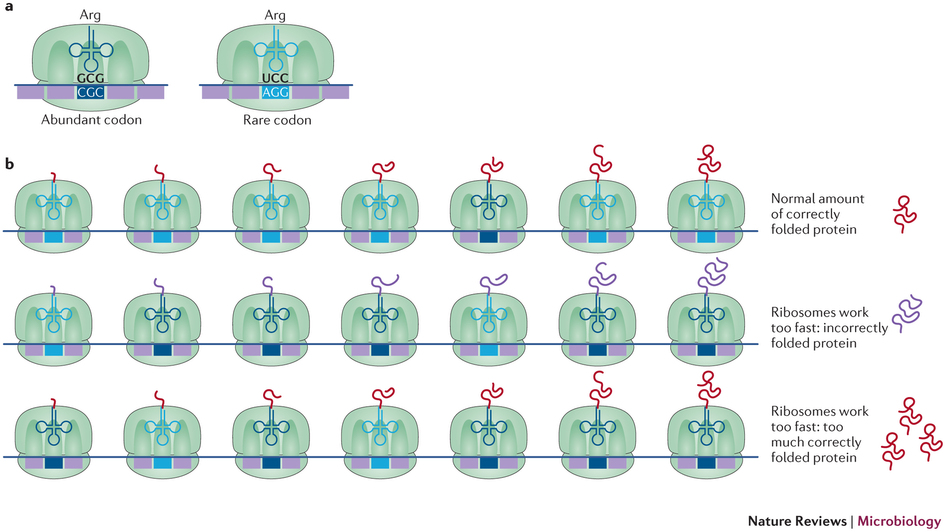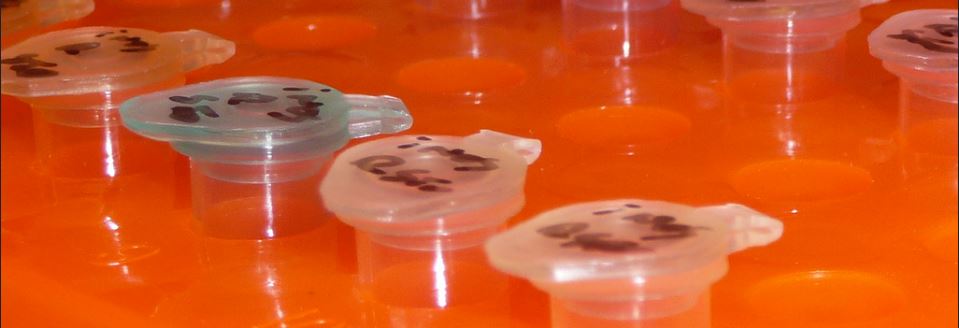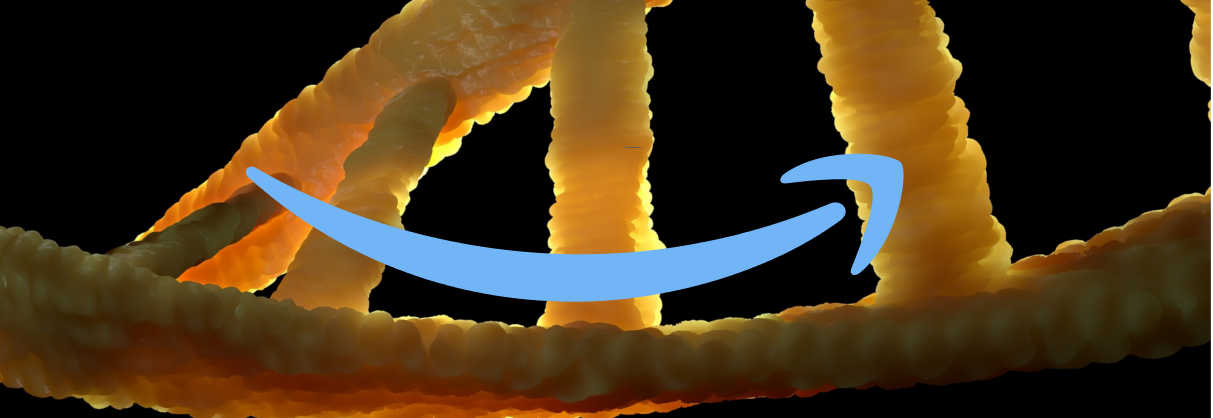Yes, you can now add a customized genetic sequence to your shopping cart, thanks to a Biotech startup. But what would you need it for?
 Let’s say, you are buying some really cool Biotech reading material online. You can now head to the ‘Industrial & Scientific’ section of Amazon and get a GeneSlice with that. For €24.99, you can now get a DNA sequence of 750 base pairs that you get to spell out – literally. As the GeneSlice is made by chemical synthesis, you can unleash your creativity and make a sequence never before seen in nature. The doors to the world of genetic gibberish are wide open!
Let’s say, you are buying some really cool Biotech reading material online. You can now head to the ‘Industrial & Scientific’ section of Amazon and get a GeneSlice with that. For €24.99, you can now get a DNA sequence of 750 base pairs that you get to spell out – literally. As the GeneSlice is made by chemical synthesis, you can unleash your creativity and make a sequence never before seen in nature. The doors to the world of genetic gibberish are wide open!
I’m not sure why this finding surprises me. It’s not like it’s the first time lab material is for sale online. If I go to the webpage of Sigma-Aldrich (now part of Merck), I have the chance to spend €35.60 in 1 kg of 99.5% pure, cell-culture-grade… glucose (yes, lab work is glorified cooking). And Zageno is building the ultimate online marketplace for lab supplies – a kind of Amazon for scientists.

I guess that’s the issue. I don’t need €35.60/kg sugar on my personal shopping list, nor I need synthetic DNA. What would I do with it? Why would Amazon sell it and who buys it?
The first part of the question may be simple: Amazon just wants to sell everything. And with help from its Marketplace scheme, which allows third parties to use its platform to sell things, it can. In this particular case, the DNA seller is Helixworks, one of the recent startups of the IndieBio accelerator.
Helixworks focuses on automated DNA synthesis and is aiming to drive down the costs of making DNA molecules from scratch. The technology to build sequences nucleotide by nucleotide (instead of copying it from organisms) has been around for a long time now, but its high price has been a problem. Prices are now falling and the technology is increasingly being used in labs, but you still have to mass order. Helixworks wants to make it closer to a normal, individual purchase – cheaper and smaller quantities.

Which brings us back to the second part of our question – who buys it? Buying smaller quantities can be interesting for labs that don’t want to invest in massive quantities. However, it seems that it’s targeting individual buyers.
Of course, people can buy it ‘just because’. DNA does hold a sort of mythical status as the information code of life. The Nobel-prize winner for the discovery of PCR, Kary Mullis, even founded a business to sell ‘molecular souvenirs’ with DNA of dead celebrities, such as Elvis Presley or Marilyn Monroe. Having your DNA creation in an ornamental Eppendorf could be the next thing.

But more exciting uses could be found in biohacking communities and citizen science, empowered by friendlier lab equipment like the Bento Lab. Big biohacking spaces (such as La Paillasse and Genspace) are more like independent labs. But the democratization trend of lab equipment may turn synthetic biology in a more accessible hobby – like DIY electronics or hacking Ikea furniture.
Then, buying synthetic DNA along with your new headphones and the latest bestseller will make perfect sense. At least for the DIY Bio enthusiast.
Feature Image Credit: Mix of Graphics (Pixabay/P0)





